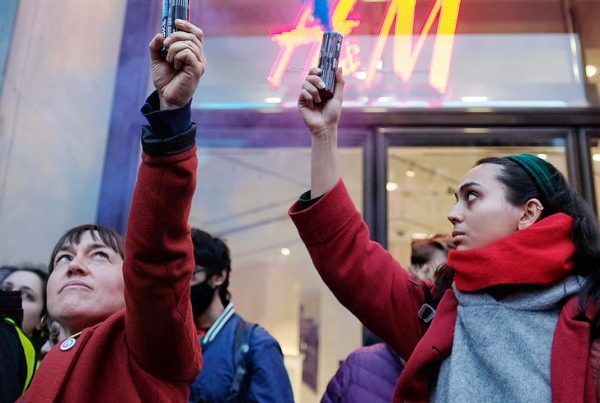In the social and environmental impact sector specifically, interim positions have the potential to support transitions. And, let’s face it, there will be plenty of need for transition as we weather the storm of geo-political change and funding pivots. The social and environmental impact sector can be slow to change gear despite the urgency of the mission and, employees often commit for many years due to their passion for the cause. This sector could arguably utilise interim positions even more to overcome bumps in the road, bring in new skills and knowledge that may only be needed temporarily and discover innovative ways of doing things.
I have spent the last couple of weeks having fascinating conversations with Directors and CEOs in the social and environmental impact sector who have been or are in, interim positions. If one thing is clear it is this, the essential ingredient to success is, these roles should be short-term, as the name suggests. Joining an organisation for a ringfenced period of time gives a license to operate differently, to bring fresh eyes and to speak out without too much concern for organisational politics or cultural norms.
An obvious point perhaps, but one for hiring organisations to remember when mapping out an assignment or considering if the interim person could perhaps become a long-term employee. ‘The skills are different’ said one senior leader. ‘It’s not that I can’t stay in one place, but I approach an interim assignment differently both intellectually and emotionally – I am cautious not to get attached from the get-go.’
Stepping back for a moment, interims roles generally fall into two camps: holding the fort or making change happen.
It is helpful to have clarity on which role you are stepping into, or which you are advertising, but more often than not, the first morphs into the second when the fort turns out to be missing a wall. Typically, there is a change process required or something new to establish – often in a different geography.
Yolanda Weldring, an Oxford HR consultant and seasoned interim, with eight assignments in six countries under her belt, explains that:
‘interim leaders bring exceptional management skills and experience of managing change. This is the critical skill.’
Kate Fitch, former Interim Director of Policy and Communications for Homeless Link adds ‘emotional intelligence’ to the critical list. She explains ‘with many interim roles you are joining because there is a gap, and gaps can breed uncertainty. A big part of my role was supporting people and the sensitivity this required. I was a reassuring presence at a difficult time.’
I think it is fair to say successful interim leaders are resilient people with, I would argue, excellent knowledge of their own capabilities and an understanding of where the adrenaline stops, and the frustration sets in. For many, it is the thrill of the ride which makes being an interim role much more than a stop gap between dream jobs. ‘It’s a case of rallying the very best of your interpersonal skills while leaving sentiment at the door’ said one, ‘we don’t bring any organisational baggage’.
Many people working in an interim capacity put in long hours and work at a pace that would be hard to sustain on a long-term basis, bringing with them an ability to ruthlessly prioritise. ‘Interim roles can be great value for money, especially if it’s swift change and new ideas you’re looking for’ said one CEO. ‘Entrepreneurial people often thrive in these assignments.’ At the same time, this is a role for people who are happy ultimately not to credit for their work. ‘You aren’t around to see the long-term results of your changes’ I am reminded.
‘You have to put the organisation ahead of your ego, it’s their success and not yours that matters.’
A unanimous plea from the interims I spoke to is for hiring organisations to be clear and realistic about the brief from day one and to give the interim manager the agency to complete it, alongside clear reporting lines and space to manoeuvre. Solid negotiation and set up at the contract stage are critical. ‘You can’t solve everything’ continues Fitch, ‘but you can start unblocking things. If you challenge too much too soon, you don’t take people with you and then risk failure.’
I would further advocate for the importance of open coaching-style conversations with the current leadership team about the interim role and its mandate. Change is hard and everyone loves a scapegoat. The more people are in the loop and see the long-term value in having this position and the change attached to it, then the deeper the impact. Which, brings us back to the nature of these positions and the recipe for success – ‘there is a frankness required’ said one interim Director working in international development, ‘this often proves popular at first, but if you stay in the role too long this frankness becomes untenable and starts to aggravate people.’
If established well with the right person, these roles can help to manoeuvre an organisation into new waters without turning the boat upside down and leave you plain sailing as they wave goodbye. The emphasis of course is on the word help. Interims may bring a little magic and well-honed skills, but let us remember, like any leader, they are not superheroes and what we do before they arrive, when they join and during their placement is critical so everyone can benefit.

Zoe Greenwood
Zoe joined Oxford HR in 2018 after 16 years working in environment and climate. She has led the growth of the Environment, Climate, Conservation and Sustainability sector specialism in the organisation, working with a wide range of client such as WWF, Greenpeace, Mighty Earth, Global Canopy, Ethical Tea Partnership, the Clean Air Fund, Manufacture 2030, Climate Impact Partners and many more.
She is committed to finding and supporting leaders to address the climate and nature emergency. Zoe has a background in learning and development and communications and has worked in India, Ghana, Kenya, China, Brazil, Costa Rica, Brazil and Malaysian Borneo. She has collaborated with local organisations, global NGOs and climate scientists and to design and deliver nature-based behaviour change programmes and worked with the corporate sector to embed sustainability thinking into their operations and culture.
Zoe has a postgraduate degree from the Institute for Leadership and Sustainability (University of Cumbria), she is a trained coach and facilitator and Co-Founder of the Climate Change Coaches.



